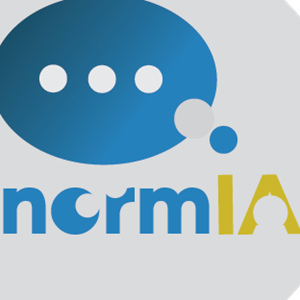NEWS

Last year, Standards Norway carried out a dedicated project to improve the information provided to prospective and newly appointed participants in standardization work. The objective was to streamline communication and ensure that committee members receive clear, accurate, and relevant information.

Austria has a wide variety of climatic conditions within a small area: there are numerous valleys and different altitudes, meaning that snow loads can vary considerably within a small radius. ÖNORM B 1991-1-3 therefore refers to the snow load map created by GeoSphere Austria (Austria's national agency for weather, climate, and geodata), which is available free of charge at hora.gv.at.

Between 17 and 21 November 2025, ASRO took part in Meeting Standards, a European awareness campaign organized by Small Business Standards (SBS) to highlight the role of standards in supporting the development and long-term success of small and medium-sized enterprises across Europe.

More than 1,000 interested parties from the European Commission, businesses, administration, science, and civil society reinforced how central standardization is as a lever for innovation and competitiveness. Over three days, the WE NORM THE FUTURE | Summit 2025 covered a wide range of topics, from expert talks on the European standardization strategy and circular economy to the annual construction conference. All formats focused on dialogue: intensive discussions were held along the entire value chain on how complex future issues can be translated into viable solutions with the help of standards.

Under the title “Europe as a global standard-setter – between AI, alliances and competitiveness,” Austrian Standards hosted talks on 11 November 2025 as part of the WE NORM THE FUTURE | Summit 2025.

The first Iberian Standardization Meeting brought together more than 300 participants and promoted discussion on the Digital Product Passport.

Last year, the Institute for Standardization of Serbia (ISS) celebrated a significant jubilee: 90 years since the establishment of the standardization body in the region. To honour this event, a monograph was recently published, illuminating the development of standardization in Serbia, from its beginnings to the modern era.

On 22–23 September 2025, Timișoara became the hub of European standardization, as ASRO – the Romanian Standards Association –, together with the University of Life Sciences "King Mihai I of Romania", hosted the 10th Balkan Conference on Standardization under the theme “Research & Education – Trigger NextGen Standardization.” The two-day hybrid event gathered representatives from CEN and CENELEC, ETSI, ISO, and the national standardization bodies of Albania, Bosnia and Herzegovina, Bulgaria, Croatia, Montenegro, Romania, Serbia, and Slovenia, along with academic leaders, policymakers, and industry specialists.

It has now been confirmed that RISE and SIS will lead a European Working Group, mandated by the European Commission, to develop standards that can reduce the risk of facade-related fire disasters.

On May 16, 2025, the Portuguese National Standardization Body – IPQ (Instituto Português da Qualidade) – officially launched NormIA, an AI-powered virtual assistant designed to support citizens and businesses in understanding and applying standards.